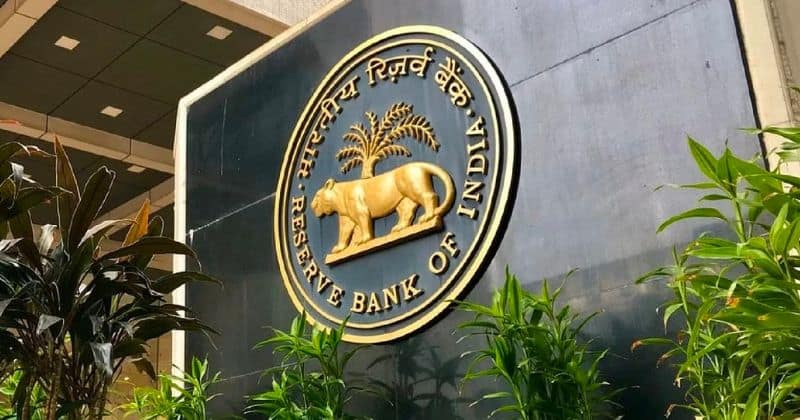How RBI Loan Recovery Guidelines Are Reshaping Debt Collection In India

Loan recovery is an essential aspect of financial lending, ensuring that banks and financial institutions recover the amounts they lend to borrowers. The Reserve Bank of India (RBI) has established specific loan recovery guidelines to regulate the collection of unpaid loans, ensuring fair treatment of borrowers while protecting the interests of lenders. These guidelines play a crucial role in maintaining financial stability and ensuring that both creditors and borrowers are treated with transparency and respect. In this article, we will explore the RBI's loan recovery guidelines, the role of financial institutions in enforcing these guidelines, and how services like RupeeRelief can assist individuals facing difficulties in repaying their loans. Loan recovery refers to the process by which a lender seeks to recover funds owed by borrowers who have defaulted on their loan repayments. A loan may become non-performing when the borrower fails to make timely payments, and it may be classified as a non-performing asset (NPA) by the lender. When a loan becomes an NPA, banks and financial institutions are required to follow specific guidelines set by the RBI for recovery. These guidelines are designed to ensure that loan recovery is carried out in a systematic, transparent, and lawful manner, while also protecting the borrower from any undue harassment or exploitation. The RBI’s loan recovery guidelines are designed to create a balance between the interests of lenders and borrowers. These guidelines regulate the actions of banks and other financial institutions in pursuing loan recovery, focusing on transparency, fairness, and the prevention of any unethical practices. Here are some of the key aspects of the RBI’s loan recovery guidelines: The RBI mandates that all lenders, including banks and non-banking financial companies (NBFCs), must adopt a Fair Practices Code. This code outlines the ethical standards and procedures that lenders must adhere to when recovering loans. Some key points in the Fair Practices Code include: An NPA is defined as a loan that has not been serviced for a specific period, typically 90 days. Once a loan is classified as an NPA, the lender must take appropriate steps to recover the outstanding amount, and the RBI guidelines dictate how the lender should manage the recovery process. The classification of NPAs plays a significant role in determining the loan recovery strategies to be employed by the financial institution. In cases where loan recovery becomes challenging, financial institutions may approach Debt Recovery Tribunals (DRTs). These tribunals are established under the Recovery of Debts Due to Banks and Financial Institutions Act, 1993. The DRTs provide a legal mechanism for the resolution of loan recovery cases, ensuring a more structured and impartial process. The RBI also provides guidelines on the functioning of DRTs, ensuring that they operate efficiently and in a manner that is fair to both lenders and borrowers. When loans are not repaid for an extended period, lenders may resort to selling the borrower’s pledged assets or conducting public auctions to recover the outstanding debt. The RBI guidelines ensure that this process is conducted transparently and without any undue distress for the borrower. It also ensures that the borrower’s rights are protected during the auction process. While loan recovery guidelines are meant to help financial institutions recover their dues, it is essential that borrowers are treated with respect throughout the process. Aggressive recovery tactics, such as harassment, intimidation, or legal threats, can lead to unnecessary stress and financial hardship for borrowers. The RBI guidelines aim to minimize such negative impacts by mandating the use of ethical recovery practices. However, borrowers who find themselves in default or facing severe financial difficulties may still struggle with loan recovery procedures. This is where RupeeRelief services can make a significant difference. For individuals who are burdened by debt and are unable to repay their loans, services like RupeeRelief provide essential support in navigating the loan settlement and recovery process. RupeeRelief focuses on helping individuals settle their unsecured loans, such as personal loans, credit cards, and other forms of debt, through legal and structured means. Here’s how RupeeRelief can assist individuals in loan recovery: RupeeRelief offers professional services in negotiating with creditors on behalf of the borrower. Expert negotiators work with banks and financial institutions to reduce the outstanding loan amounts or secure more favorable repayment terms. This can significantly ease the borrower’s financial burden and ensure that they do not face unnecessary stress or harassment. RupeeRelief provides legal support to individuals who may be facing legal threats or actions from lenders. Legal experts can guide borrowers through the process, helping them understand their rights and obligations under the law. This can help borrowers protect themselves from unethical recovery practices and ensure that any legal actions are in compliance with RBI guidelines. RupeeRelief helps borrowers create structured debt settlement plans that allow them to repay their loans in manageable installments. These plans are designed to be realistic based on the borrower’s financial situation and provide a path to financial freedom without excessive interest rates or penalties. Unsecured loans and credit card debts are often the most challenging for borrowers to manage, especially when they face high-interest rates and accumulating fees. RupeeRelief specializes in helping individuals settle these types of loans by negotiating reduced settlements or payment plans that are more manageable. This can help borrowers avoid the negative consequences of loan default, such as legal action and damage to their credit score. The RBI’s loan recovery guidelines serve to protect both lenders and borrowers by ensuring that recovery practices are transparent, fair, and ethical. By adhering to these guidelines, banks and financial institutions help maintain trust in the financial system, while also safeguarding the interests of borrowers who may be struggling with debt repayment. For individuals facing significant debt challenges, services like RupeeRelief provide invaluable support in negotiating with creditors, creating affordable repayment plans, and ensuring that borrowers are not subjected to unfair recovery tactics. By utilizing such services, individuals can regain control of their financial situation and work towards achieving debt-free living.Understanding Loan Recovery: An Overview
RBI Guidelines for Loan Recovery: Key Points
Fair Practices Code for Lenders
Classification of NPAs
Use of Debt Recovery Tribunals (DRTs)
Sale of Assets and Auctions
Impact of Loan Recovery on Borrowers
How RupeeRelief Services Can Assist in Loan Recovery
Expert Negotiation with Creditors
Legal Advice and Support
Debt Settlement Plans
Resolving Credit Card and Unsecured Loan Issues
The Importance of Fair Loan Recovery Practices

